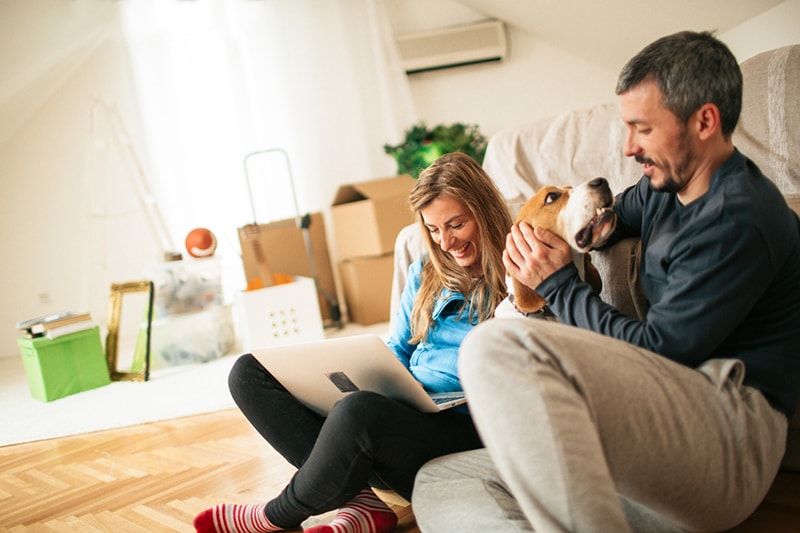How To Make the Right Match With Shelter Pets
Learn more about the processes animal shelters use to help match up adoptable pets and their new families.
Looking to share your apartment or condo with a new four-legged friend? Or maybe you and your pooch are moving from a house to a smaller residence? It's all good! Dogs are quite adaptable and can be happy in almost any space.
The first thing you need to do is to make sure four-legged roommates are allowed. Some landlords or homeowner's associations (HOAs) have restrictions regarding the breed, size, or the number of dogs that can live there. If you're renting, there may be additional terms in your lease pertaining to dogs. They may ask you to comply with rules such as:
Additionally, you could be charged an extra security deposit to cover pet-related damage. Make sure you understand any costs and requirements up front to avoid surprises later.

If you're an apartment dweller looking to adopt a dog, you should consider more than just the size of the breed.
Just because a dog is small doesn't necessarily mean they're the right fit for a small apartment.
While they may take up less space, small dogs like Chihuahuas or Jack Russell Terriers can be high-strung and energetic. Dogs that tend to bounce around and bark at every noise can be disruptive in tighter living quarters. They can also cause issues with neighbors who enjoy their peace and quiet. That’s not to say you should rule them out, but temperament and energy level are important to consider.
For instance, you might not think a giant Mastiff would work well in a small apartment, but these stately dogs are generally calm and need less exercise especially as they get older. Retired racing Greyhounds can be another good choice for apartment living. These generally friendly pooches prefer to exercise in short bursts and chill out the rest of the time.
You may also want to consider adopting a senior dog who may naturally have a lower activity level. You might be concerned about the health and longevity of an older dog, but they can make wonderful companions and live happily for many years with the right kind of care. Plus, they’re often overlooked at adoption at shelters so you could be saving a life by adopting an older dog. If you're set on bringing home a puppy, keep in mind that they are energetic and need lots of attention.
Of course, you can't predict a dog's temperament based on their age or breed. All dogs are individuals with their own personalities and preferences. They're also shaped by their environment and prior experiences. If you're adopting a dog from a shelter, ask the people who work there for advice on which dog might best fit your needs—and vice versa.
Another thing to factor into your decision is your lifestyle. Are you looking for a best friend who will join you on long hikes in the woods? Then a small dog with little legs may not be able to keep up. Or maybe you want a calm cuddle bug to warm your lap while you watch TV? Then an energetic dog who prefers to play constantly may not be right for you.
If you have children, you'll want a dog that can get along well with kids and endure a little roughhousing. In this case, you might not want a toy dog who can get stepped on by small feet or get injured easily.
You should think about the kind of care your dog will require. For instance:
You'll also need to shower your dog with love and attention. That's the best part!

Some dogs acclimate quickly to a new living space while others may take some time to adjust. Here are some things you can do to help them with the transition:
Remember to make a plan for your dog on moving day too. You don't want your dog to slip out an open door or get hurt in the commotion as furniture and boxes are moved around. You can designate someone to supervise your dog during the move or leave your pooch with a trusted friend or family member for the day.

As a responsible dog parent, you'll need to make sure your apartment is a safe and happy space for your dog. Here are some tips to help:
You'll also need to dog-proof the inside of your apartment. For instance, hide or tape down wires that can be chewed or tripped on, remove any choking hazards, and store toxic housecleaning products, medications, and pesticides out of paw’s reach.
If something does happen to your dog in or around your apartment, pet insurance can help you give them the best veterinary care possible. Get a free quote now.
The information presented in this article is for educational and informational purposes only and does not constitute or substitute for the advice of your veterinarian.